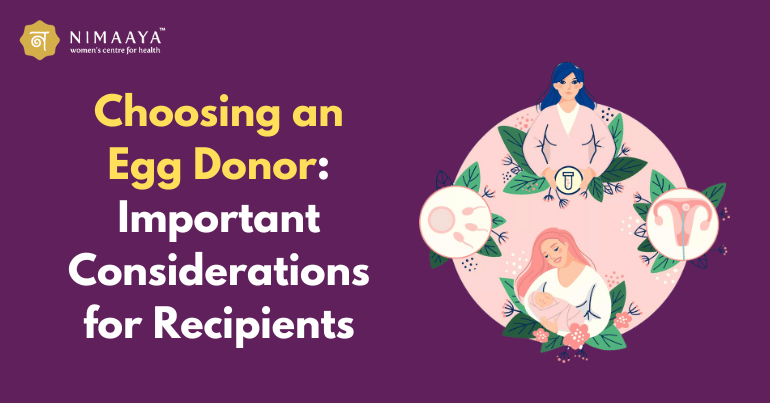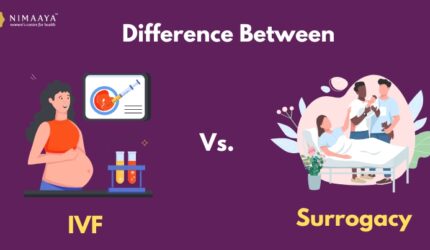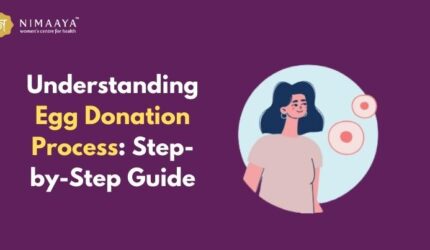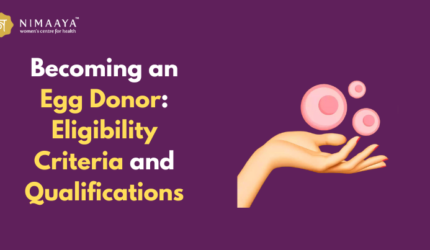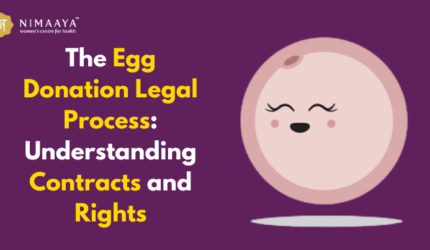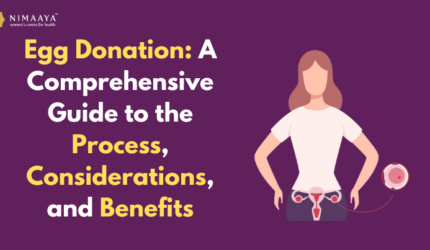Introduction
Embarking on the journey of parenthood through egg donation can be a profound decision for many individuals or couples. The process of choosing an egg donor is filled with important considerations that can shape the future of a family. Whether you’re navigating this path due to fertility challenges or other reasons, finding the right egg donor is paramount. If you have questions in your mind, like how to choose an egg donor in India, then this blog is the way to your solution. In this comprehensive guide, we will delve into the essential factors to consider when selecting or choosing an egg donor, offering insights into the process, costs, and potential outcomes. Join us as we navigate the intricate terrain of egg donation, shedding light on how to make informed decisions for your family’s future.
Understanding Egg Donation
Egg donation is a reproductive option that enables individuals or couples struggling with infertility to achieve pregnancy and build their families. In this process, a healthy and fertile woman, known as the egg donor, voluntarily donates her eggs to be fertilized with sperm in a laboratory. These fertilized eggs, or embryos, are then transferred to the uterus of the intended parents or recipient, to achieve pregnancy.
This also offers hope and opportunity to individuals facing various fertility challenges, including diminished ovarian reserve, genetic disorders, or recurrent pregnancy loss. It is a highly regulated and medically-assisted procedure, conducted under the supervision of fertility specialists to ensure the safety and well-being of all parties involved. Through the donation of eggs, individuals and couples can fulfill their dreams of parenthood and embrace the joy of bringing new life into the world.
Also Read: Understanding Egg Donation Process: Step-by-Step Guide
How to Choose Egg Donor in India
Choosing an egg donor in India involves selecting a reputable fertility clinic, understanding legal regulations, and identifying personal preferences. After consulting with medical professionals, intended parents review donor profiles, considering factors like medical history, physical traits, and anonymity preferences. Legal and ethical implications, as well as cost considerations, are also paramount. Trusting one’s instincts and taking time to make a well-informed decision ensures a positive outcome in the egg donation process.
Factors to Consider When Choosing an Egg Donor
When it comes to choosing an egg donor, several factors come into play, ranging from physical characteristics to medical history and personal preferences. Recipients often seek donors who possess desirable traits such as good health, intelligence, and physical resemblance to the intended parents. Additionally, evaluating the donor’s medical history for any hereditary conditions or genetic predispositions is crucial in mitigating potential risks and ensuring a healthy outcome.
❧ Physical Characteristics:
Recipients may prioritize specific physical attributes such as eye colour, hair colour, height, and body type when choosing an egg donor. These characteristics often play a significant role in creating a sense of connection and resemblance between the donor-conceived child and the intended parents.
❧ Genetic Health and Medical History:
Assessing the donor’s medical history is critical in identifying any hereditary conditions or genetic predispositions that could potentially impact the health and well-being of the future child. Recipients should thoroughly review the donor’s family medical history and undergo genetic screening to minimize the risk of passing on genetic disorders.
❧ Educational Background and Intelligence:
Many recipients value donors with a strong educational background and intellectual capabilities. They may seek donors who have achieved academic success or demonstrate intelligence, as these traits are often perceived as indicators of future success and potential in the offspring.
❧ Reproductive History:
Understanding the donor’s reproductive history, including previous successful pregnancies or fertility issues, can provide valuable insights into her fertility potential and reproductive health. Recipients may prefer donors with a proven track record of successful pregnancies to increase the likelihood of a positive outcome.
❧ Psychological and Emotional Compatibility:
While physical and medical criteria are essential considerations, recipients should also assess the donor’s psychological and emotional well-being. Compatibility in personality traits, values, and emotional stability can contribute to a positive and harmonious relationship between the donor-conceived child and the intended parents throughout their lives.
❧ Anonymity Preferences:
Recipients must consider their preferences regarding donor anonymity, whether they opt for an anonymous donor or a known donor arrangement. Open communication with the donor and clear agreements regarding contact and communication in the future are essential to establish mutual understanding and respect within the donor-conceived family dynamic.
By carefully considering these factors and working closely with their fertility clinic or reproductive specialist, recipients can make an informed decision when choosing an egg donor, paving the way for a successful and fulfilling journey toward parenthood.
Egg Donor Procedure
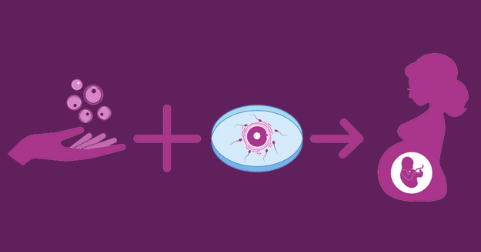
The egg donor procedure involves several key steps to ensure a successful outcome. Initially, the donor undergoes thorough medical and psychological evaluations to assess their suitability for donation. Once cleared, the donor undergoes ovarian stimulation through hormone injections to produce multiple eggs. Transvaginal ultrasonography aspiration is a minimally invasive surgical technique used to extract these eggs.
Following retrieval, the eggs are fertilized with sperm in a laboratory setting, and the resulting embryos are transferred to the recipient’s uterus. Throughout this egg donor process, both the donor and recipient receive comprehensive medical care and support from fertility specialists.
Understanding the Costs Involved
Cost can be a significant consideration for recipients exploring egg donation. The expenses associated with the egg donor process encompass various aspects, including donor compensation, medical screenings, fertility treatments, and administrative fees. In India, the cost of egg donation can vary depending on factors such as the clinic’s location, donor profile, and additional services offered. Recipients should inquire about the complete breakdown of egg donor process costs and explore financing options or insurance coverage if available.
When considering the donation of eggs in India, recipients must factor in the costs associated with the process. These expenses include the selection of a female egg donor price in India, which can vary based on factors such as the donor’s profile and the clinic’s location. Additionally, recipients should be aware of the overall egg donor price in India, which encompasses various elements such as donor compensation, medical screenings, and administrative fees. Recipients need to obtain a detailed breakdown of these costs from their chosen fertility clinic and explore potential financing options or insurance coverage to manage expenses effectively.
The Emotional Factor of Utilising a Donor Egg
While the decision to use a donor egg can be empowering for some, it may also evoke complex emotions such as grief, loss, or uncertainty. Recipients may grapple with feelings of inadequacy or fear of judgment from others. It’s crucial for individuals and couples undergoing this process to seek emotional support from counsellors, support groups, or trusted loved ones. Acknowledging and processing these emotions is an integral part of the journey towards parenthood.
Conclusion:-
Choosing an egg donor is a significant milestone on the path to parenthood, requiring careful consideration of various factors and preferences. By understanding the egg donor process, evaluating egg donor characteristics, assessing medical history, exploring donor anonymity preferences, and addressing potential regret of using donor eggs, recipients can make informed decisions that align with their values and aspirations. With the support of reputable centers like Nimaaya IVF Center and open communication with medical professionals and donor agencies, recipients can embark on this transformative journey with confidence and optimism.

